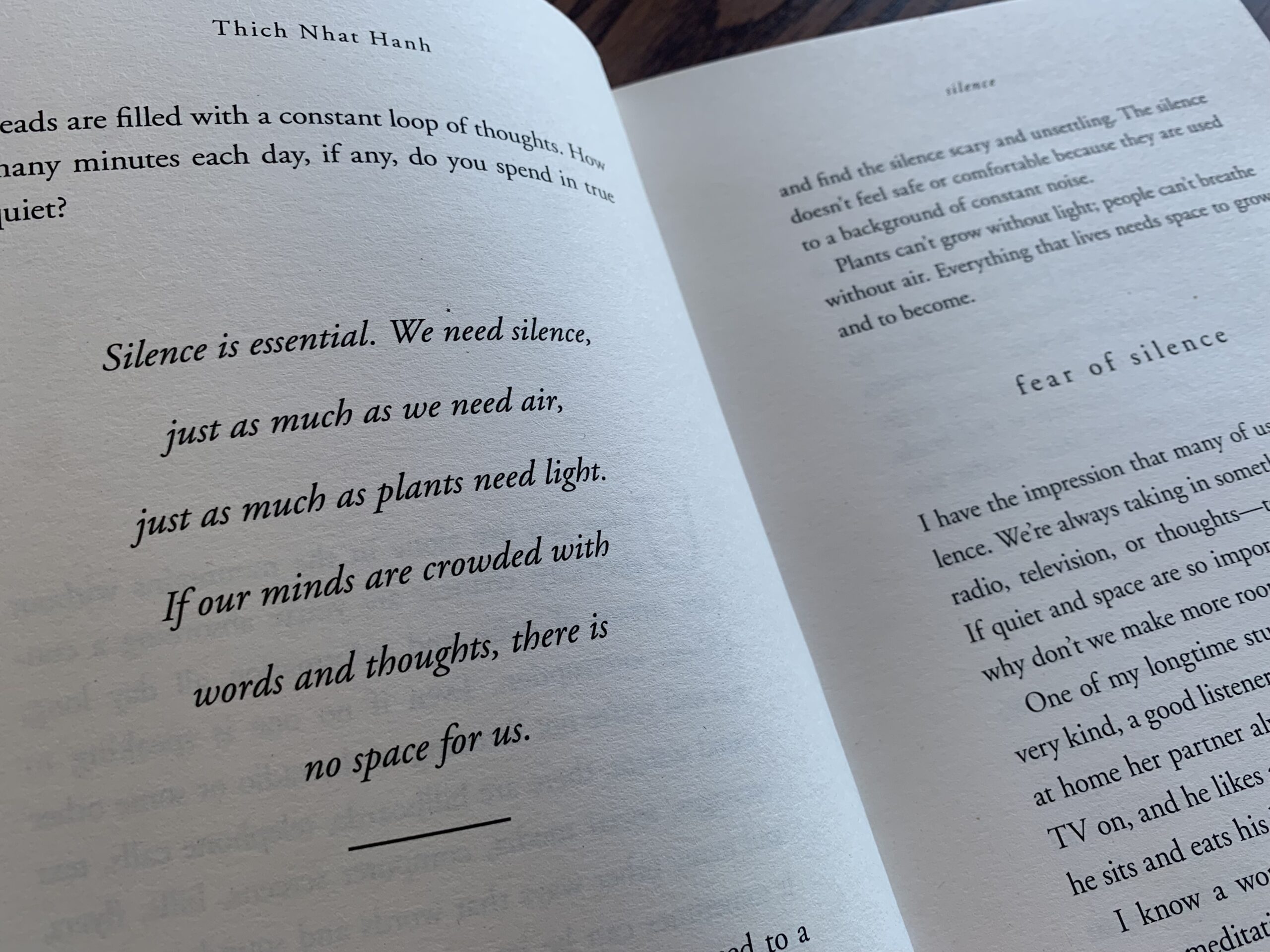What you consume has the power to alter both your current state of being and your long term health.
As a highly sensitive person (HSP), you are even more vulnerable to the impact of your consumption. In order to live wholeheartedly, it is important that you remain vigilant in managing your stress levels. If you aren’t careful, you can compromise your ability to ward off overwhelm, mental illness, and burn out.
Below I will share the six types of consumption. My hope is that you will feel inspired to allow space in your beautiful heart to mindfully manage these over time. This practice will vastly improve your overall state of being.
Nourishment
We all know that what we eat has the power to make or break us. Therefore, this category may feel like a no-brainer. However, nourishment is much more nuanced for an HSP.
For example, when I used to drink alcohol, even one cocktail would compromise my ability to manage my sensitivities the following day. I often dealt with increased insomnia, stomach issues, headaches, and joint inflammation, leaving me all the more vulnerable to overwhelm. When I finally realized alcohol wasn’t serving me and I quit, the quality of my life as an HSP greatly improved.
For more on my journey to sobriety, click here.
What’s more, studies have shown that HSPs are more vulnerable than non-HSPs to the stimulant effects of caffeine and refined sugar. We are also more prone to allergies, food sensitivities, and gastrointestinal issues. Remember, the way that your body feels is either providing positive or negative stimuli to your sensitive nervous system.
Of course, only you know what foods leave you feeling sustainably energized, healthy, and nourished. The more choices you make in that direction, the better suited you will be to navigate the demands of life.
Sensory
What you experience through your five senses, is received as input by your neurological system. For most people, the neurological system works to filter out inconsequential input. However, for people with sensory processing sensitivity (HSPs), it is as if the filter is compromised, allowing more stimuli through. This leaves HSPs more vulnerable to overstimulation.
You won’t always be able to control your environment, but what you can do is allow yourself moments in silence with your eyes closed as a regular practice. This is why I strongly encourage meditation for HSPs. It only takes a few moments of quiet mindfulness to restore your neurological system to a state of calm. If it is hard to find a quiet place where you are, invest in a pair of noise-canceling headphones like these.
Media
Whether through social media, tv, radio, or the news, everyone is bombarded daily by a steady stream of information.
MRI technology has shown that mirror neurons (the neurons responsible for empathy) are more plentiful and active in HSP brains. Therefore, if you take in sad content, for example, your capacity for empathy will likely cause you to become sad. Often, that sadness will live on long beyond the moment of consumption and replay as a memory, manifesting sadness throughout your day. Of course, this remains true for the consumption of content that inspires anger, fear, or other negative emotions.
As a result of this understanding, I have become very selective about the content I consume. I am not active on any social media platforms (although I do choose to watch YouTube videos occasionally), and if I watch anything on TV, it is generally light, beautiful, or inspiring.
The Company we Keep
Because of your heightened empathy, you may find that people with problems gravitate to you. You are kind, emotionally intelligent, and a great listener. Who wouldn’t want advice and kindness from you?
The problem with this is that they get to walk away from you feeling lighter because you have absorbed the burden of their heavy load. If you find that you are in a one-sided relationship with someone who isn’t capable of equally returning this kindness to you, it is alright to either limit your time with them or altogether let them go. For more on this topic, click here.
In addition to weeding out one-sided relationships, it is also important to take stock of the quality of input we receive from the company we keep. Do you have a friend who is always gossiping? Or a family member who constantly complains? Consuming this negative content will poison your own mind, leaving you feeling drained and negative as well.
Meditate on the company you keep. Who inspires you? Who lifts up the people around them? Who expresses gratitude and sees the good in others? Those are your people. You are worthy of setting boundaries around the company you keep.
Your Own Inner Voice
What does your inner voice say about you and the circumstances of your life? It’s funny to think about your own voice as content to consume, but it absolutely is. You receive your own words, and they become you. If your thoughts are negative and unforgiving right now, that is who you are in this moment.
Become mindful of your inner voice, and catch those negative thoughts as they come. Try not to judge. Your negative thoughts are only habits to which you have become accustomed. Do the work to mindfully re-frame the negative to a positive.
For example, months ago, my beautiful, type-A daughter, Lucy, skillfully painted a raccoon onto a t-shirt. Her work is so incredibly detailed and adorable, and at that time, she was proud. At 11, she already has an identifiable artistic style, all her own.
A few months later, after much more practice painting characters on clothing, she came back to her raccoon and started picking it apart. The paint had cracked a little, and the layers of detail weren’t “as defined” as some of her newest work. She was upset that she had been impatient between layers in her first painting attempt.
I took that moment to help her re-frame. I reminded her that she could feel proud of all of the diligent practice she had done since then and of the subsequent knowledge she gained as a result. The raccoon was the beginning of a new artistic talent for her, and is still exceptional, even if “flawed” in her eyes. After all nothing is perfect.
Society
Culture influences ideals. Even if you believe you’ve escaped it’s influence, society has been shaping the way you see yourself and the world since you were an infant.
You may find yourself chasing pursuits or aligning with ideals that aren’t necessarily born from your unique soul. That’s okay. Just slowly begin listening to your heart speak to you again, little by little. If you find yourself branching off from societal norms, embrace that.
Authenticity is important to HSPs. We spend a lot of time in our own minds, and we need to stand firm in our own unique path and purpose in order to live wholeheartedly.
Marathon, Not a Sprint
Moving toward mindful consumption is a marathon, not a sprint. I have taken the slow and steady approach to this concept, and it has allowed me to feel that each step was doable. I still have so much work to do, but I remind myself always that growth is incremental. I hope you will extend yourself this same grace.
As always, thank you for reading. If you have enjoyed this article, I hope you will take a moment to explore the rest of this site. I would also sincerely appreciate if you would consider subscribing. Subscribing allows you to receive one email per week, alerting you to the release of my latest article. Much love!



